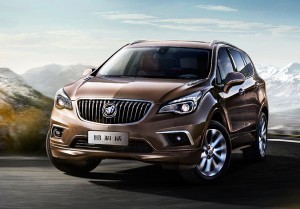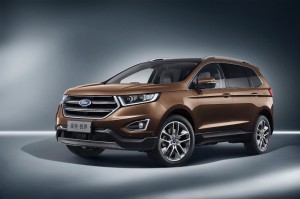China’s auto sales stalled in December and ended 2017 up a meager 1.4% compared with a year ago results as the popularity of SUVs helped to offset falling demand for sedans, the China Association of Automobile Manufacturers said.
With global car makers such as General Motors, BMW, Volkswagen AG, Mercedes-Benz, Toyota and Nissan all reporting solid, but not spectacular, gains during 2017, smaller local brands common to almost every province and international brands such Ford and Hyundai, appeared to suffer the most for the slowdown, which was due in part to the end of special tax credits.
The growth rate was barely one-tenth the previous year’s 15% rate, which was boosted by a temporary tax cut.
China’s continuing crackdown on automobile pollution, which curbed sales in the largest cities and the tightening credit for smaller indigenous brands, also appear to have taken a toll on sales.
In December, purchases of SUVs, sedans and minivans in the biggest market by number of vehicles sold shrank 0.7% from a year earlier to 2.6 million, the China Association of Automobile Manufacturers said. Total vehicle sales including trucks and buses edged up 0.1% to just over 3 million.
(China seeks to add AI to 50% of vehicles by 2020. Click Here for the story.)
SUV sales in December rose 8.4% to just under 1.2 million, accounting for 46% of the total sales. Sedan sales shrank 4.3% to 1.2 million. For the year, SUV sales raced ahead 13.3% to 10.2 million while sedan demand shrank 2.5% to 11.8 million.
General Motors Co., Volkswagen AG and Nissan Motor Co. and local brands including Geely and BYD have grown faster than the market, taking share from smaller Chinese rivals.
Sales by Chinese brands this year rose 3% to 10.8 million. Their market share expanded by 0.7 percentage points compared with 2016 to 43.9%. Sales of lower-cost, Chinese-brand SUVs, the most popular vehicle segment, surged 18% over 2016 to 6.2 million units.
General Motors said 2017 sales of GM-brand vehicles by the company and its Chinese manufacturing partners rose 4.4% from a year earlier to just over 4 million: a new record.
(Click Here to see more about GM exceeding 4 million in sales in China for the first time.)
VW said December sales totaled 342,100. 2017 sales were up 5.9% at 3.2 million. Nissan said monthly sales rose 13.4% to 184,297. Annual sales advanced 12.2% to 1.5 million.
Ford’s December sales slid 9% to 140,103. For the year, sales were down 6% at just under 1.2 million vehicles. Toyota’s sales gained 9.4% to 107,500. For the year, they were also up 9.4% to 1.3 million vehicles.
Geely, known abroad as owner of Sweden’s Volvo Cars, said December sales by its own brand in China rose 42% over a year earlier to 153,625. 2017 sales were up 63% at just over 1.2 million. BMW AG said December sales of BMW and Mini brand cars rose 19.2% to 52,026. Full-year sales were up 15.1% to 594,388 vehicles.
China is also beginning an investment campaign to boost production of electric vehicles under pressure from Beijing to meet official minimum sales targets that take effect in 2020. VW announced in November it will spend $11.8 billion by 2025 to develop and manufacture all-electric and plug-in hybrid vehicles for China.
(Click Here for details about China banning production of 553 models.)
Ford Motor Co. announced plans last month to roll out at least 15 new electrics in China by 2025. GM previously announced plans to start production of a pure-electric vehicle in China and launch 10 electric or gasoline-electric hybrids by 2020.


